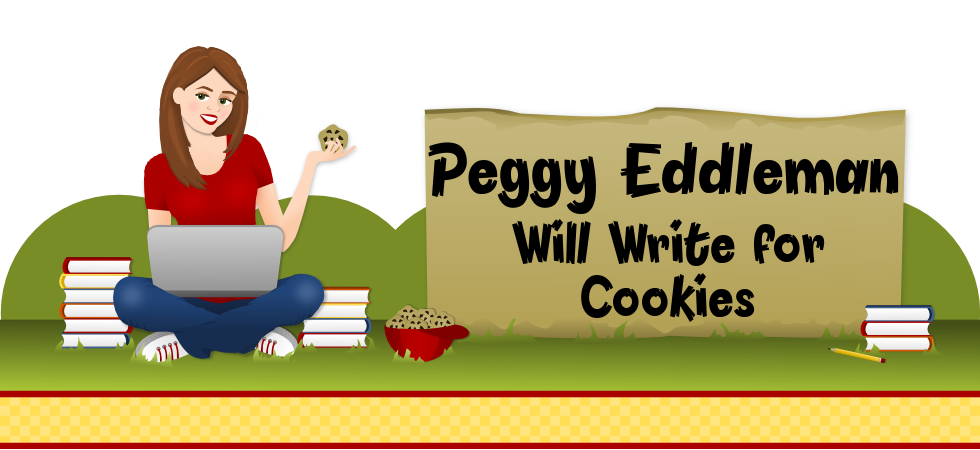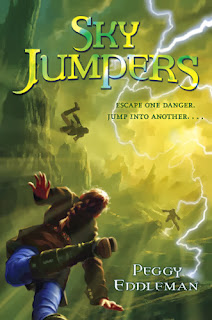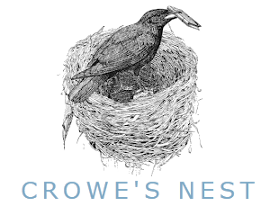 You guys have heard of The Bookshelf Muse, right? (If not, click on that link, then make a button for it on your browser's bar. Because holy great resource, Batman! Seriously. You'll wonder how you ever lived without it. Especially when you find your characters expressing emotion with the same body language ALL THE TIME. Not that I ever do that or anything....) Anyway, I am so excited to have the co-author of not only the Bookshelf Muse but also of the book THE EMOTION THESAURUS, Becca Puglisi, here to share her knowledge.
You guys have heard of The Bookshelf Muse, right? (If not, click on that link, then make a button for it on your browser's bar. Because holy great resource, Batman! Seriously. You'll wonder how you ever lived without it. Especially when you find your characters expressing emotion with the same body language ALL THE TIME. Not that I ever do that or anything....) Anyway, I am so excited to have the co-author of not only the Bookshelf Muse but also of the book THE EMOTION THESAURUS, Becca Puglisi, here to share her knowledge.Take it away, Becca!
My daughter started Pre-K in August. I’m still adjusting, but she’s loving it and doing really well. She’s very peer-oriented, but she’s a little bossy and a lot opinionated, so I knew this year would be more of a social experiment for her than an academic one. I found this to be true when she came home a few days ago, upset that one of her friends had said she didn’t want to play with her.
I took the news well (WHAT LUNATIC TODDLER DOESN’T WANT TO PLAY WITH MY ANGEL??!) It was a sad little crisis, though not unexpected. Girls will be girls, especially at the ripe old age of four. But after talking it through, I realized that the other girl wasn’t saying she didn’t want to play at all; she was just tired of the game they’d been playing every day at recess for weeks—the reenactment of some story my daughter made up about two little bats being chased by a giant “comtagious” bat named Maleficent.
Like many creative geniuses, she clearly isn’t being recognized in her own time.
Once I’d ferreted the truth out of this tangle, we talked about how friends should share and take turns choosing what to play. And since then, the sun has returned to shine upon the toddlers of Room 30. It was just disappointing that my daughter’s feelings were hurt over a simple misunderstanding.
And that got me to thinking. Misunderstandings are the culprits behind a lot of our real life problems. As such, they’re perfect for our stories—an ideal vehicle for creating conflict, which leads to tension, which creates heightened emotion in both the character and the reader, which leads to awesomeness all over the page. So, while we want to avoid misunderstandings in real life, we should look for ways to develop them in our stories. Here are a few natural ways for misunderstandings to take place:
Things Not Said. In my opinion, this is the most common reason for communication mistakes. People either deliberately leave things out, or just don’t articulate their thoughts clearly and important information is lost. In Princess Academy, Miri is frustrated and hurt when her father won’t let her work in the quarry like the other girls. She assumes it’s because she’s weak and small and worthless in his eyes, so she doesn’t discover until she finally confronts him at the end of the story (*spoiler alert*) that her mother was killed in the quarry and he can’t bear the possibility of losing her, too. If Miri had brought this up earlier, that plot line would’ve come to an end, throwing the whole story out of whack. To maintain tension, don’t let your characters confront. Keep them assuming and stewing and simmering until the story’s climax, when everything is finally made clear.
Things Overheard. How often have you walked into the middle of a conversation and gotten confused about who or what was being discussed? This scenario can just as easily lead to misunderstandings on the part of your hero. When he jumps into a conversation, or overhears two friends talking without knowing the context, he’s left to make all kinds of assumptions—ones that can easily be incorrect. This is an easy way to frustrate your hero, build conflict between him and the other characters, and lead the reader astray.
Misinterpreted Actions. It’s been said that up to 95% of our interactions as humans are nonverbal, so a large part of communication involves interpreting the actions of others. When a person misreads these clues, it leads to problems. In Hate List, main character Valerie is as shocked and horrified as everyone else when her boyfriend opens fire in their school cafeteria. As she reviews the past year with Nick, she begins to see clues that she missed. Her flashbacks provide a great example of how one person can misread another’s actions, in this case, with devastating results. To ramp up the conflict in your story, make sure you include some clues about what’s really happening, but in such a way that they can be misinterpreted by others.
Misperceptions. So much of the conflict in our world is a result of misperceptions. People look a certain way, so we assume they are a certain way. Someone makes one bad decision and we jump to the conclusion that this is who they are. Prejudice, guilt by association—these things are a result of making snap judgments about someone’s character or personality. In The Wicked and the Just, when Cecily and her father move to Caernarvon in Wales, she assumes that all of the Welsh are uncivilized, untrustworthy, and ungrateful. This misperception leads to big-time trouble. As much as we don’t want to be prejudiced, to some degree, we are. Apply this common fault to your characters to create difficulties and give them room to grow.
So, apparently, misunderstandings can be beneficial. If you’re looking for ways to increase conflict or stretch out the tension over the course of a story, hopefully these tips will help.
BIO:
Becca Puglisi is one half of The Bookshelf Muse blogging duo, and co-author of TheEmotion Thesaurus: A Writer's Guide to Character Expression. Listing the body language, visceral reactions and thoughts associated with 75 different emotions, this brainstorming guide is a valuable tool for showing, not telling, emotion. The Emotion Thesaurus is available for purchase through Amazon, Barnes& Noble, iTunes, and Smashwords, and the PDF can be purchased directly from her blog.
Fabulous advice, isn't it? Thanks so much for joining us, Becca!
So what about you guys? Have you used The Bookshelf Muse as resource before?

































